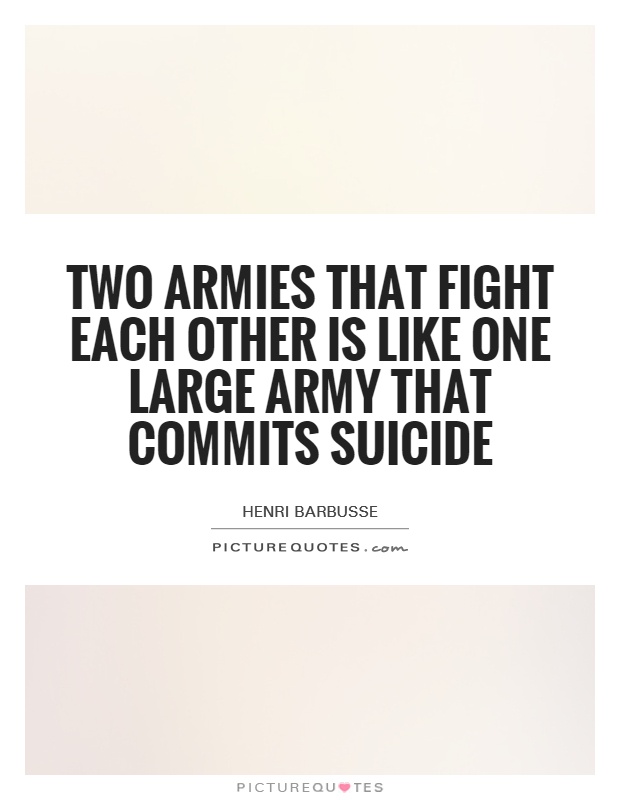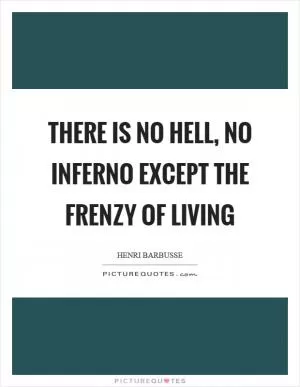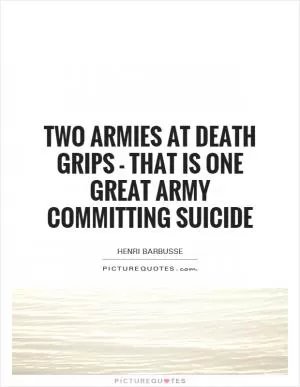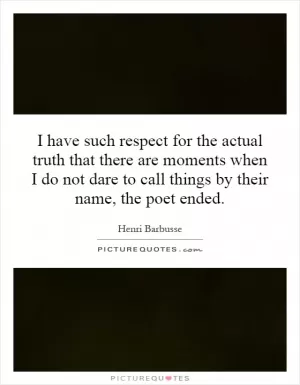Two armies that fight each other is like one large army that commits suicide

Two armies that fight each other is like one large army that commits suicide
Henri Barbusse, a French novelist and journalist, is best known for his anti-war novel "Under Fire" (also known as "Le Feu"). In this novel, Barbusse vividly portrays the horrors and futility of war through the eyes of a group of French soldiers fighting in the trenches during World War I. One of the central themes of the novel is the senselessness of war and the idea that two armies fighting each other is akin to one large army committing suicide.Barbusse's statement that "two armies that fight each other is like one large army that commits suicide" is a powerful and poignant reflection on the destructive nature of war. In the context of "Under Fire," this idea is exemplified by the brutal and senseless violence that the soldiers experience on the front lines. The soldiers are caught in a never-ending cycle of death and destruction, where victory seems elusive and the only certainty is suffering.
The concept of two armies fighting each other as a form of collective suicide speaks to the idea that war ultimately leads to the destruction of both sides. In the heat of battle, soldiers are pitted against each other in a deadly struggle for dominance, but in the end, both sides suffer immense losses and are left devastated by the ravages of war. Barbusse's portrayal of war as a self-destructive act underscores the futility of conflict and the tragic consequences of violence.
Through his vivid and harrowing descriptions of the horrors of war, Barbusse challenges the glorification of battle and exposes the true cost of armed conflict. He forces readers to confront the grim reality of war and to question the motives and justifications for engaging in such destructive behavior. By equating two armies fighting each other to a form of collective suicide, Barbusse highlights the senselessness and tragedy of war, urging us to seek alternative means of resolving conflicts and promoting peace.












 Friendship Quotes
Friendship Quotes Love Quotes
Love Quotes Life Quotes
Life Quotes Funny Quotes
Funny Quotes Motivational Quotes
Motivational Quotes Inspirational Quotes
Inspirational Quotes